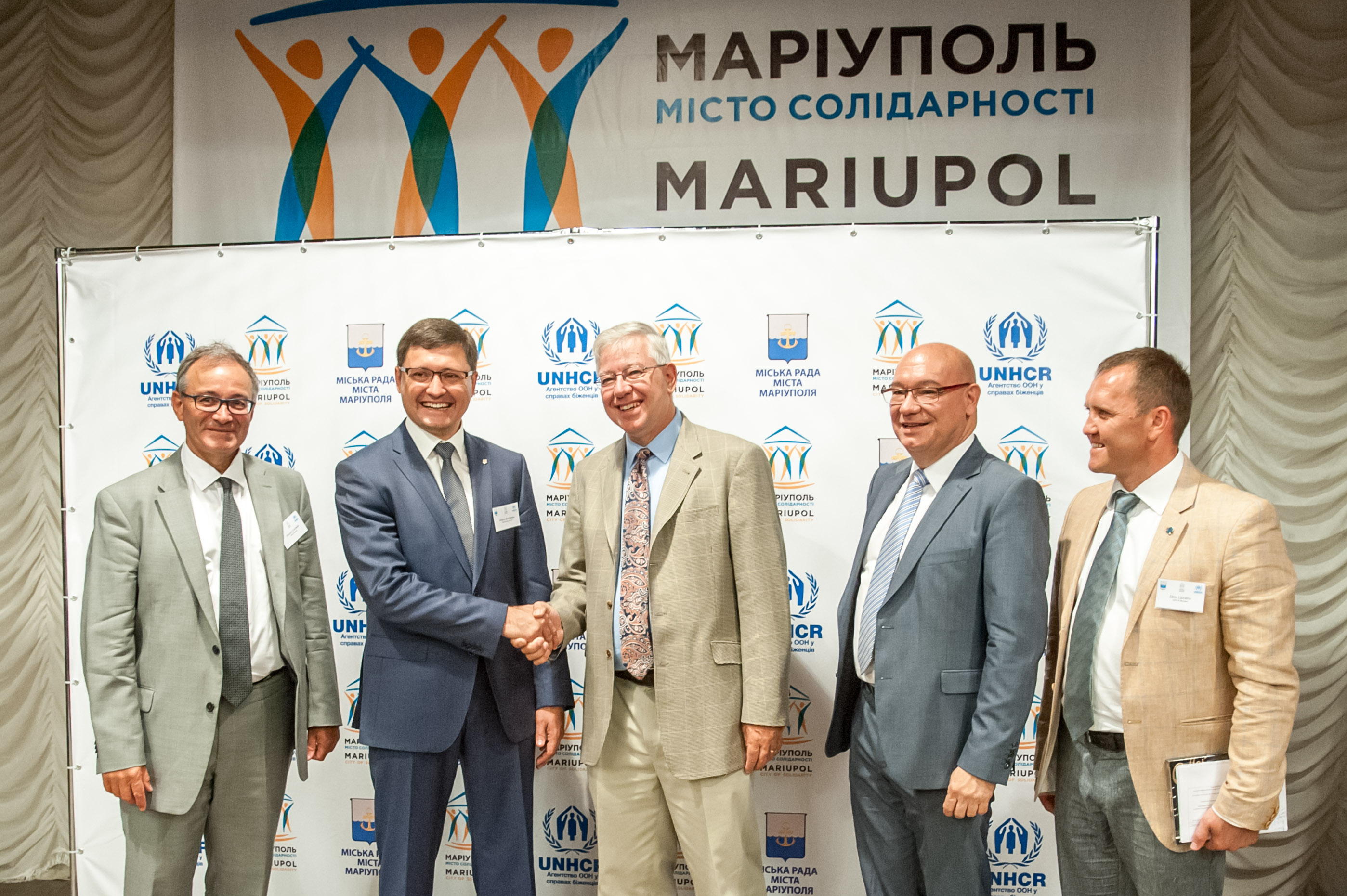The integration of IDPs is a high priority for Mariupol, since over 100,000 IDPs, representing a quarter of the city’s pre-conflict population, settled there. The city embraced this dramatic change as an opportunity. Local authorities and the residents of Mariupol responded proactively in several ways. Local citizens mobilized to provide urgent basic support, and local authorities created a favourable environment for the newly arrived displaced persons. The business community engaged to provide humanitarian support and employment. Faith-based and minority group communities reached out to IDPs and those living in dangerous areas near the line of contact to provide emergency and core relief materials covering the immediate needs of the displaced.
One year later, Mariupol had accumulated experience: both good practices that helped IDPs create new homes in Mariupol, and challenges along the way. It was time to share this experience with other Ukrainian cities, which had also responded with generosity and creativity to challenges of helping IDPs make new homes.
Cities play a critical role in integrating IDPs. The tendency is to pay more attention to the national government, which is responsible for adopting the overall legal framework and for allocating financial resources. However, it is often up to local governments, both at the provincial and municipal levels, to implement the policies. Furthermore, IDPs interact more with municipal authorities than with national government officials because municipal authorities take care of most matters that directly affect citizen’s lives such as education, healthcare and social protection. Ukraine’s decentralisation policy puts greater authority and resources into the hands of local authorities. Therefore, they play an important role in providing integration-friendly conditions for IDPs.

